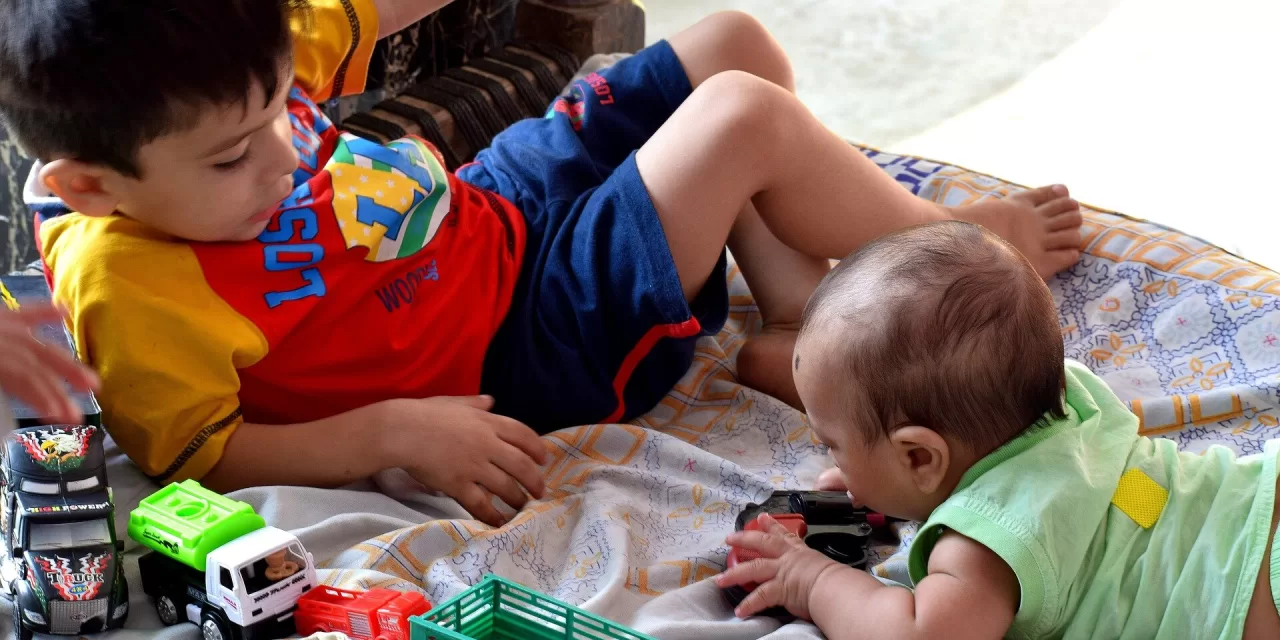A recent study from the University of Georgia highlights how the way parents play with their children may influence how those kids interact with their peers later on. According to research published in the journal Developmental Psychology, the dynamics of parent-child play provide a framework for children to navigate social situations with others.
Researchers found that the interaction between mothers and their toddlers during play significantly predicted how these children would later behave with their peers. “It’s really about how their behaviors are occurring together,” said Niyantri Ravindran, the lead author of the study and an assistant professor in UGA’s College of Family and Consumer Sciences. “That back-and-forth dialogue between the mother and child is contributing to how children are interacting with their peers.”
Caregivers Play a Key Role in Social Development
The study, which drew from data collected at the University of Illinois, involved more than 120 mothers and their toddler-aged children. Researchers observed the pairs as they played in a lab setting, and later tracked the children’s interactions with friends in preschool. After six months, the children were paired with new playmates, and the researchers observed their social behavior. By the age of 4.5 years, the participating children were also observed while playing with close friends.
The researchers focused on two main behaviors: responsiveness and assertiveness. Responsiveness referred to how children were receptive to their playmates’ suggestions and enthusiastic about engaging with them. Assertiveness, in this context, was defined as taking initiative, such as inviting another child to play or coming up with new game ideas.
The study found that children who had a positive, sensitive connection with their mothers—marked by mutual responsiveness—were more likely to show similar responsiveness with their friends. Similarly, children who demonstrated assertiveness during play with their mothers were more likely to take initiative when interacting with unfamiliar peers.
Assertiveness as a Crucial Social Skill
Meeting new peers can be challenging for children, requiring a delicate balance between taking initiative and being receptive to others’ ideas. The researchers emphasized that assertiveness does not mean aggressive behavior. Rather, it refers to a child’s ability to confidently suggest activities and engage with new peers in a positive way.
“You don’t want a child to be completely compliant and never really taking the initiative,” said Ravindran. “Neither do you want a child who is bossy and never listening to the other kids’ suggestions. Having a balance between those two behaviors could help result in more socially competent children.”
The Importance of Play in Social Skill Development
The study underscores the significant role caregivers play in shaping a child’s social development. Beyond serving as primary role models, parents also provide critical practice for children’s interactions in new social situations. While parents often set the rules in most aspects of their child’s life, playtime allows for a more balanced dynamic, giving children the opportunity to take the lead and express their preferences.
“Playtime is an opportunity to follow the child’s lead,” Ravindran explained. “That can really help balance out those behaviors.”
The research suggests that by fostering a supportive, responsive relationship with their children during play, parents may equip their kids with the social skills necessary to confidently interact with others, whether meeting new peers or engaging with friends.
Reference:
Niyantri Ravindran et al, Dynamic coupling of maternal sensitivity and toddlers’ responsive/assertive behaviors predicts children’s behavior toward peers during the preschool years., Developmental Psychology (2024). DOI: 10.1037/dev0001809.












